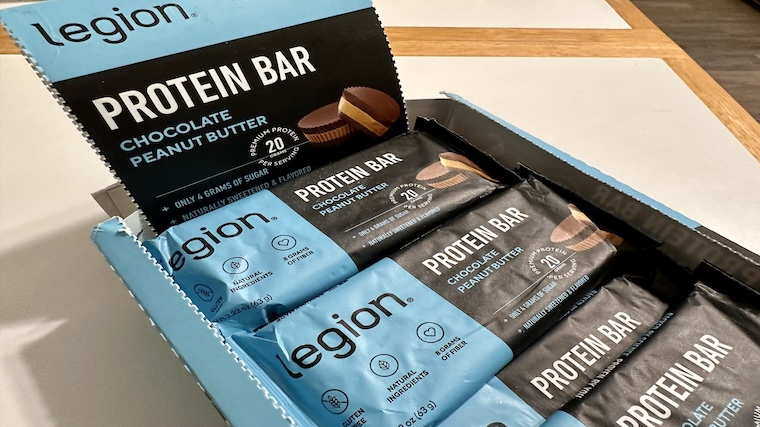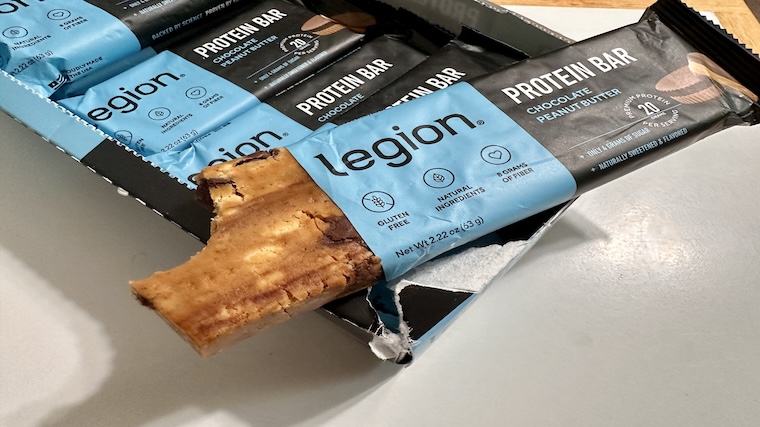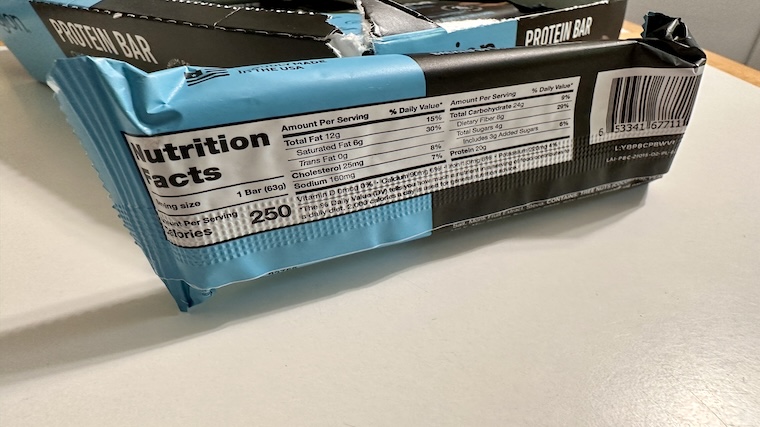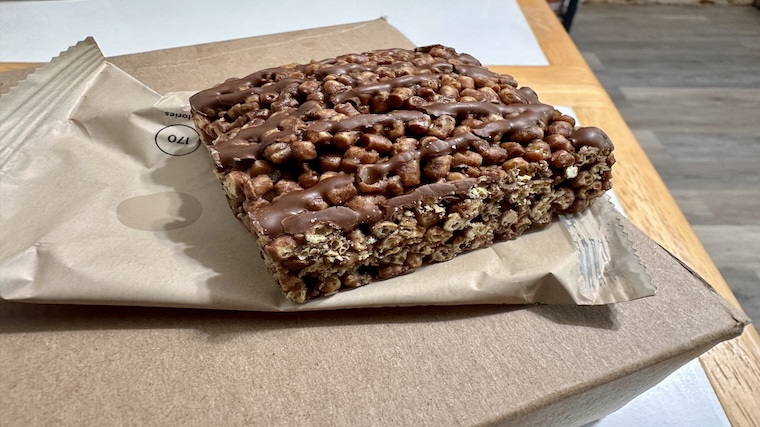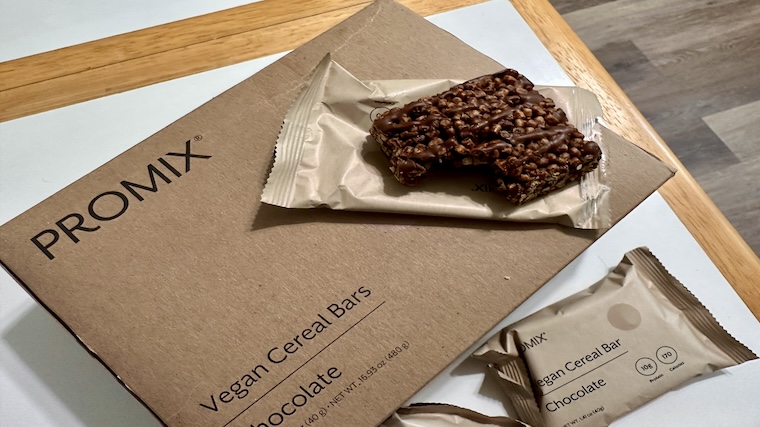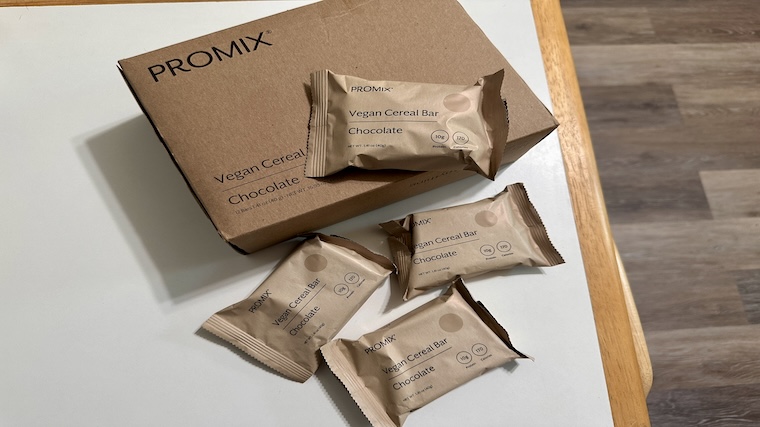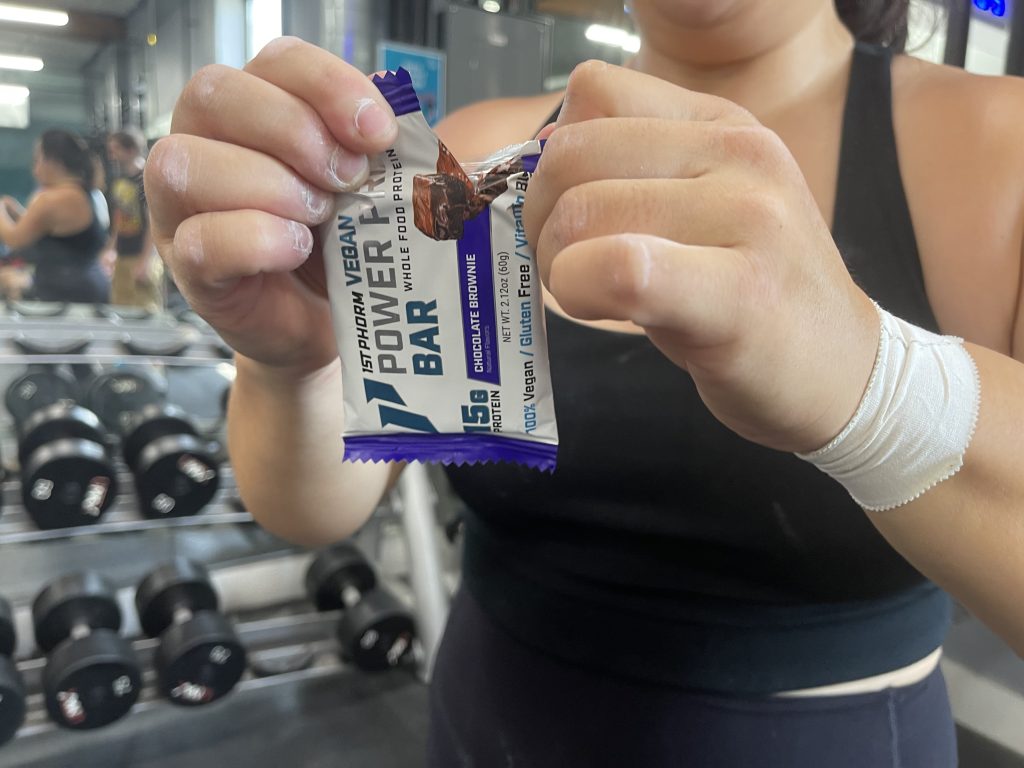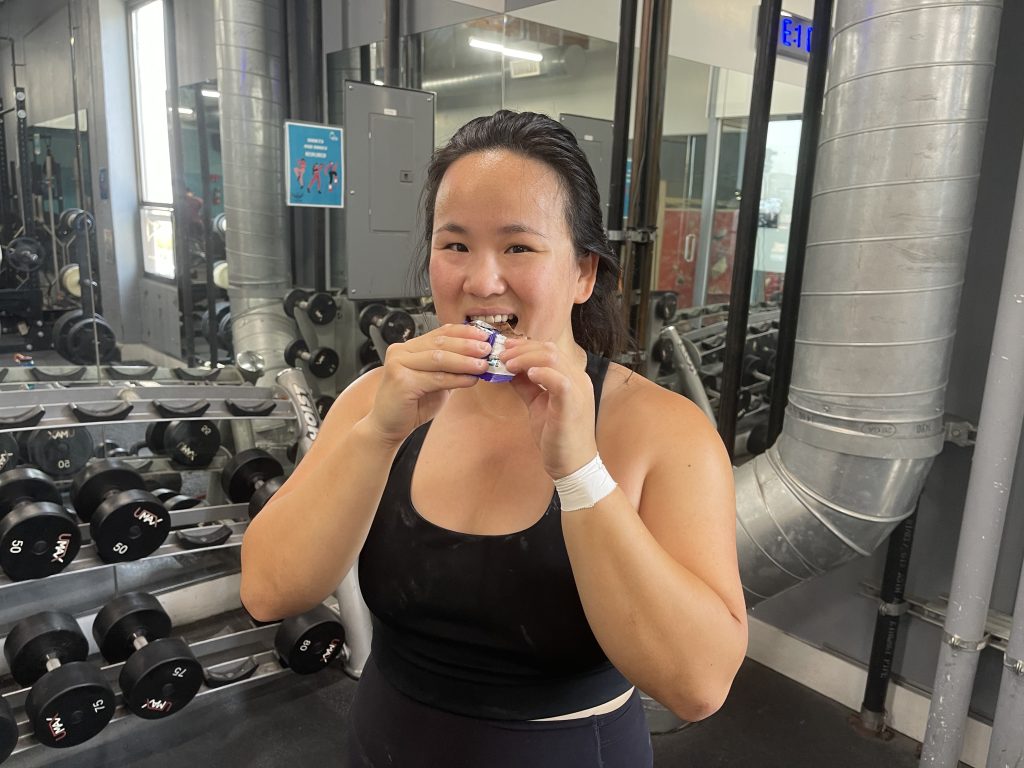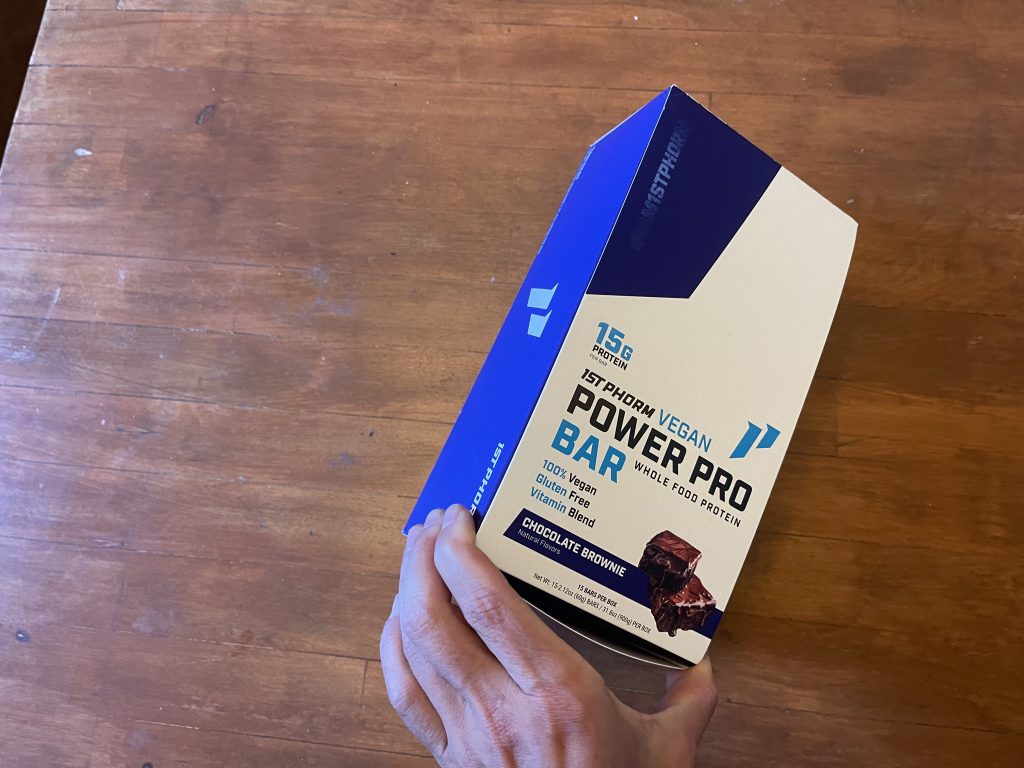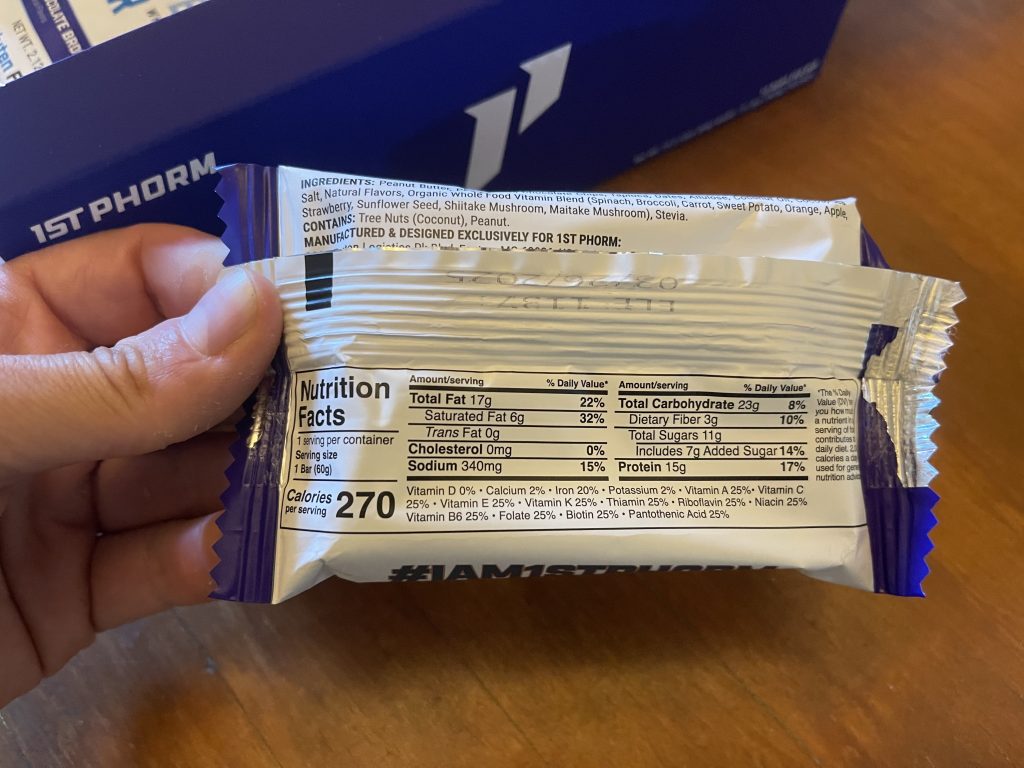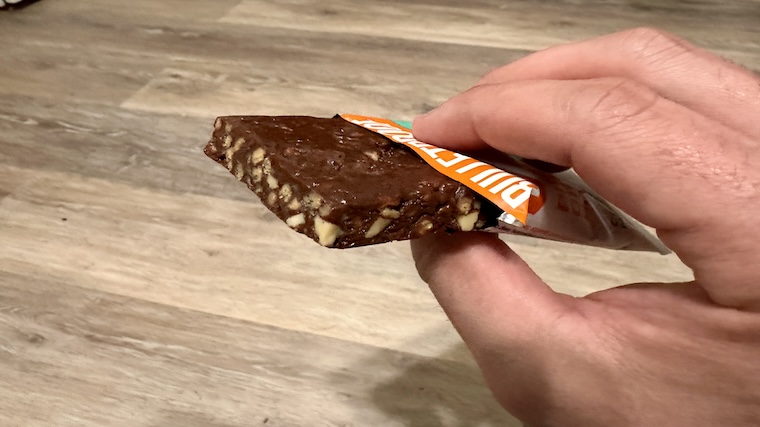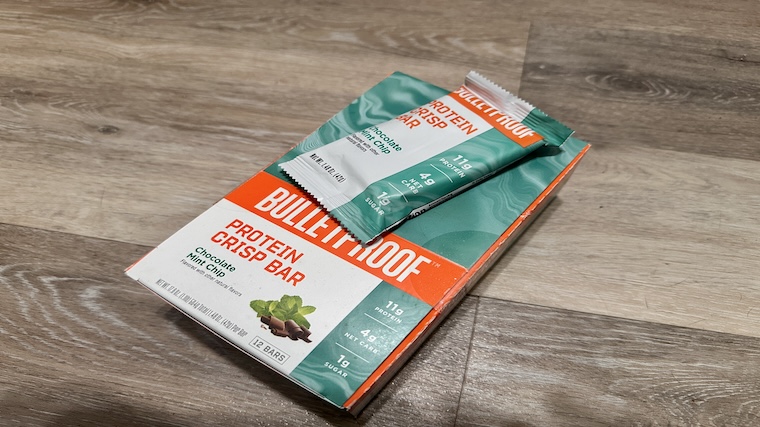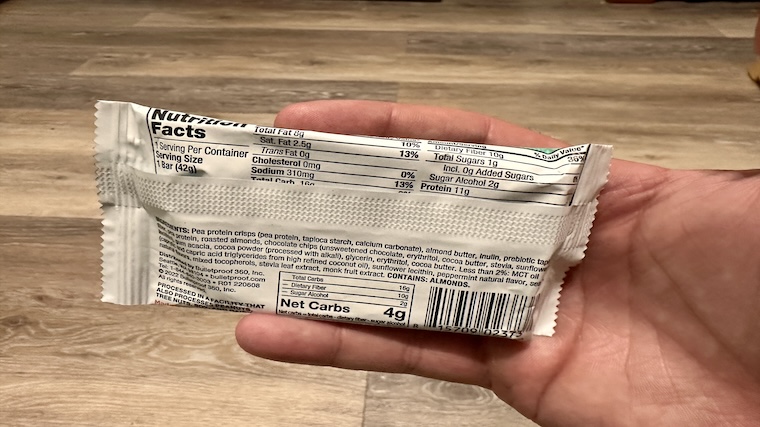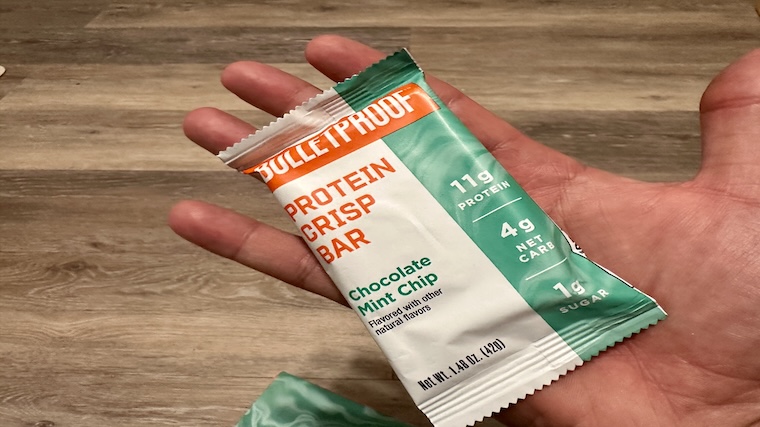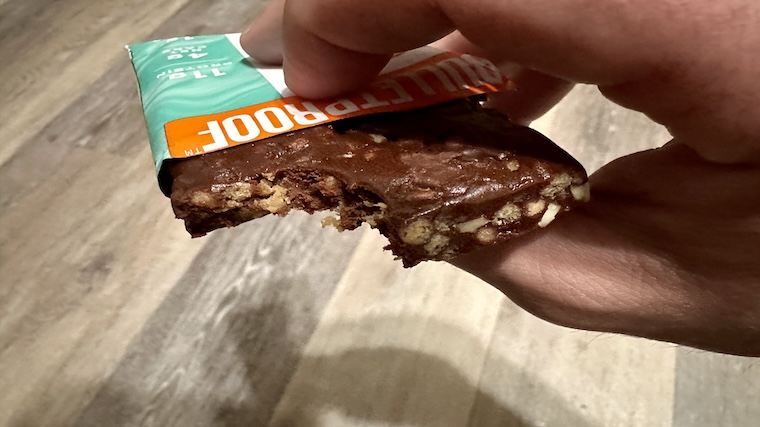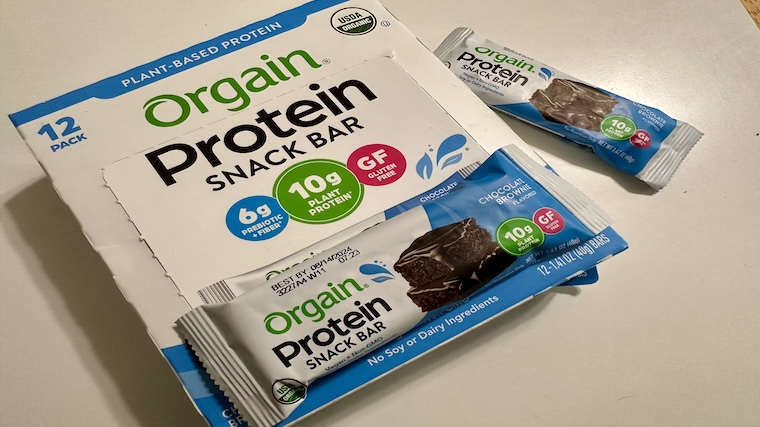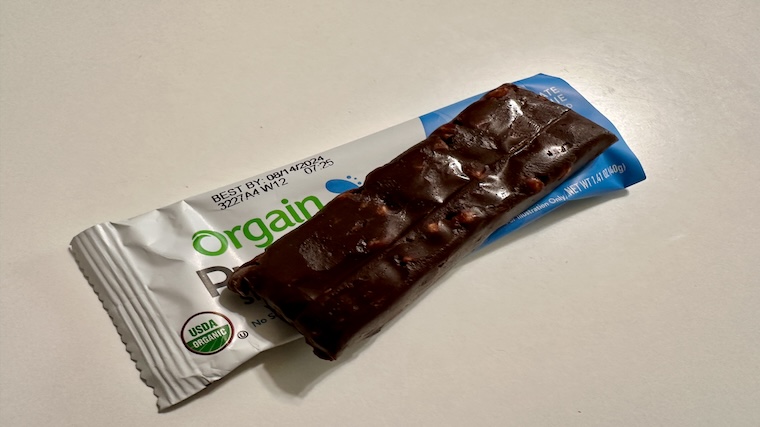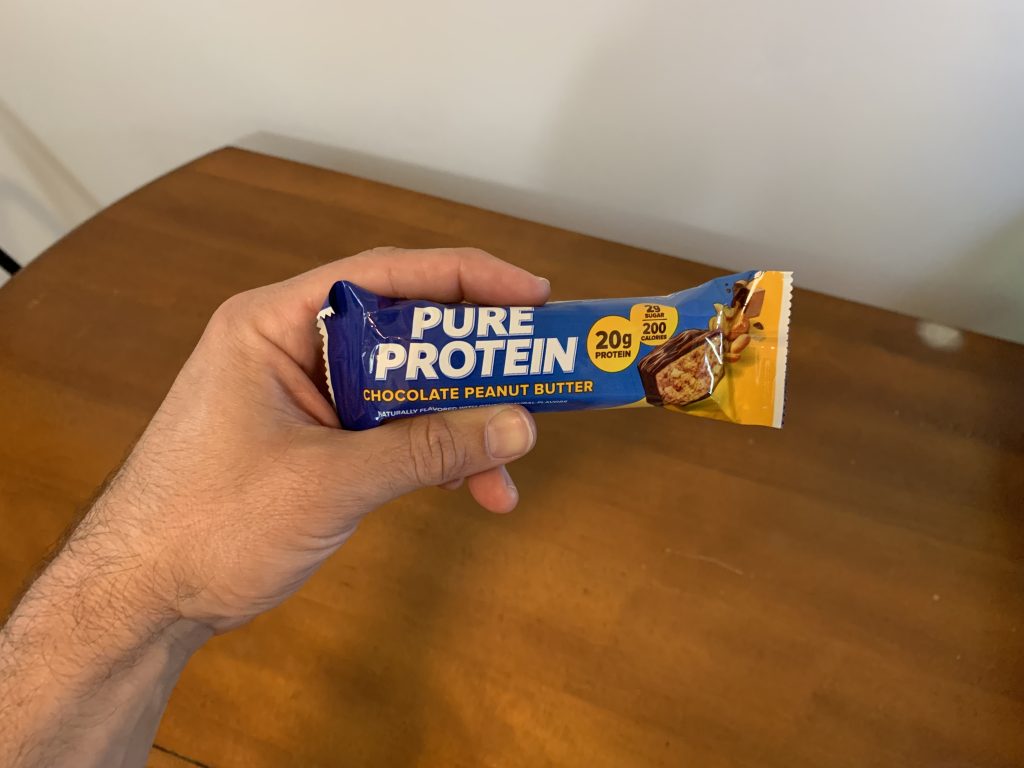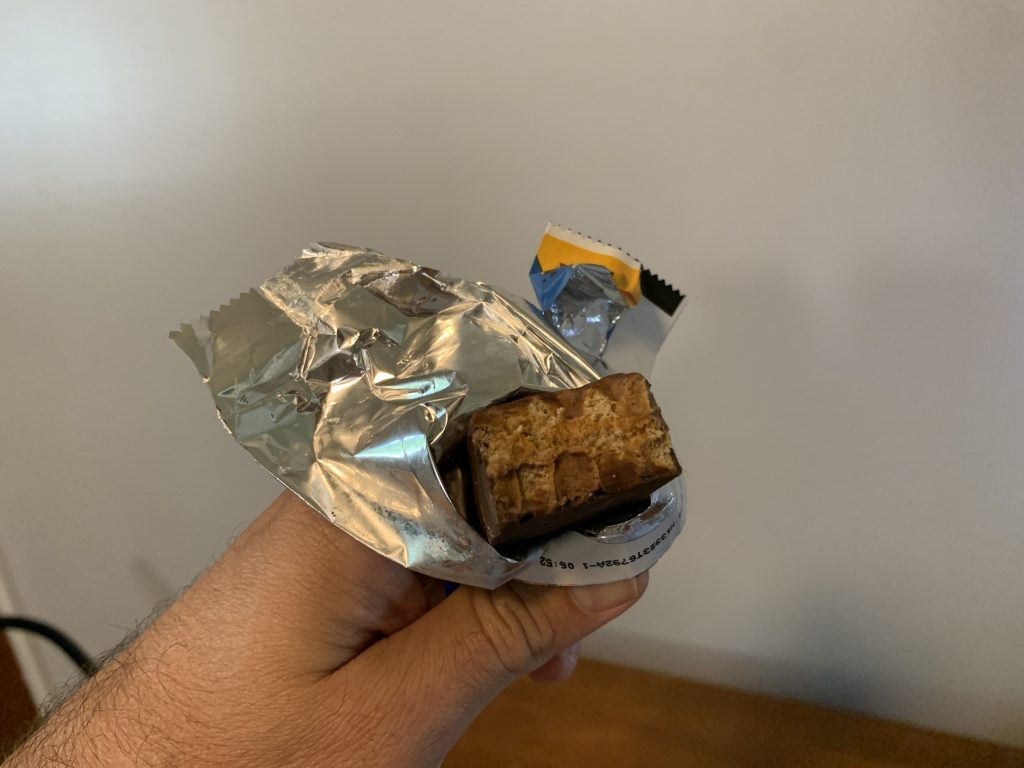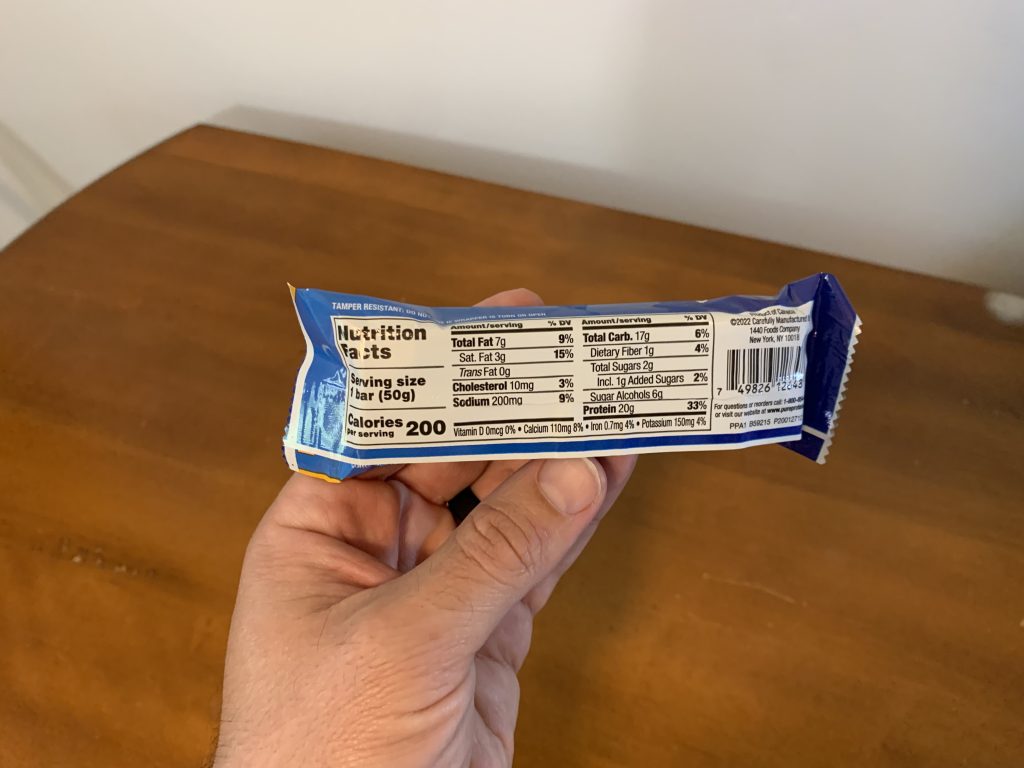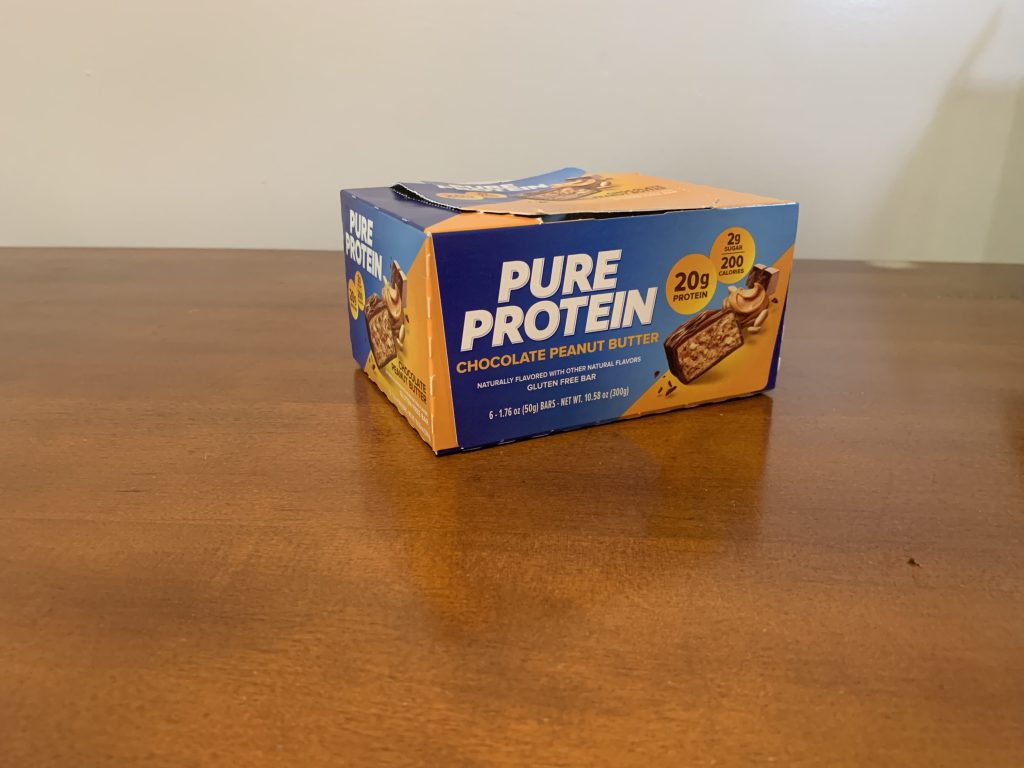A hearty protein powder can help you hit your protein goals, but making a protein shake or toting around a shaker bottle isn’t always feasible. Protein bars are worthwhile alternatives for those needing a quick fix of muscle-boosting macros. Additionally, the best protein bars can be your secret weapon for consuming sufficient amino acids for muscle growth and keeping hunger at bay between meals.
Take a look online, at your local supplements store, or even at the gas station, however, and you’ll soon realize that there’s practically no end to the assortment of protein bars available to athletes. To narrow down your search efforts, we took a deep dive into the category by personally testing 46 different bars, conducting mounds of research, and pouring over customer reviews. After weeks of testing (and plenty of wrappers discarded) we’ve landed on the best protein bars available today.
The Best Protein Bars of 2025
- Best Protein Bar Overall: Transparent Labs Protein+ Bar
- Best Tasting Protein Bar: David Protein Bar
- Best Protein Bar for Muscle Gain: Legion High-Protein Bar
- Best Crunchy Protein Bar: Promix Crunchy Puff Bar
- Best Natural Protein Bar: 1st Phorm Vegan Power Pro Bar
- Best Protein Bar for Weight Loss: Bulletproof Protein Crisp Bar
- Best Vegan Protein Bar: Orgain Protein Snack Bar
- Best Protein Bar for Keto: Nick’s Keto Snack Bar
- Best Budget Protein Bar: Pure Protein Bars
- Best Low-Carb Protein Bar: EPIC Protein Bars
Editor’s note: The content on BarBend is meant to be informative in nature, but it should not be taken as medical advice. The opinions and articles on this site are not intended for use as diagnosis, prevention, and/or treatment of health problems. It’s always a good idea to talk to your doctor before beginning a new fitness, nutritional, and/or supplement routine. Individual needs for vitamins and minerals will vary.
Best Protein Bars Video Review
Check out our best protein bars round-up video for an up-close and personal look at some of the picks on our list. BarBend‘s Nick English walks you through the makeups of our favorite macro-rich snacks, offering some expert insight along the way on what you may like or dislike about them depending on your training goals and nutritional needs.
Best Protein Bar Overall: Transparent Labs Protein+ Bar
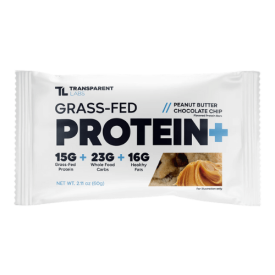
Among our favorite protein bars, the Transparent Labs Protein+ Bar packs plenty of protein per serving and uses only grass-fed whey, alongside other clean ingredients.
Specs
- Price Per Bar: $3.33
- Protein Source: Grass-fed whey
- Protein per Serving: 15g
- Calories per Serving: 280
- Available Flavors: Peanut Butter Chocolate Chip, Dark Chocolate Almond, Oatmeal Chocolate Chip
There are a few must-have factors we considered for the best protein bar: protein content, clean ingredients, and a delicious flavor. Transparent Labs Protein+ Bar ticks all those boxes and more. One bar packs 15 grams of grass-fed whey protein with no artificial sugars or flavors, earning the formula a 4.5 out of 5 rating.
“I like the list of wholesome ingredients featured in Transparent Labs Grass-Fed Protein+ Bars,” says our expert reviewer Chelsea Rae Bourgeois, RDN. “The deductions stem from the saturated fat and added sugar content.”
Whereas many protein bars use sucralose or other artificial sugars as sweeteners, Transparent Labs includes honey and dates as sweetening agents. We also like that the macros are pretty balanced, including 16 grams of fat, 23 grams of carbs, and 15 grams of protein.
“These bars genuinely taste like peanut butter and chocolate. The chocolate pieces melt in your mouth,” says our tester, a certified personal trainer, who rates the flavor a 4 out of 5. “Unlike some other protein bars, they don’t taste chalky. I’m not a huge protein bar person, but I could totally foresee myself keeping these around for rushed days.” The texture is also a highlight, earning a matching 4 out of 5. “They’re a little bit dry, but the dates definitely helped make the bars soft and chewy,” our tester says.
One downside, for some athletes, may be the fat content in these bars. Higher fat content isn’t necessarily a bad thing but it may not fit everyone’s dietary regimen. “These are pretty dense and they’re not low fat at all,” our tester says. “But the formula is clean, which is a big selling point for me.”
Unfortunately, Transparent Labs’ protein bars aren’t the most budget-friendly pick on our list. One box of 12 bars costs $39.99, which is about $3.33 per bar. We gave this product a 3 out of 5 for cost, as most of our other picks cost less than $3 per bar.
Best Tasting Protein Bar: David Protein Bar
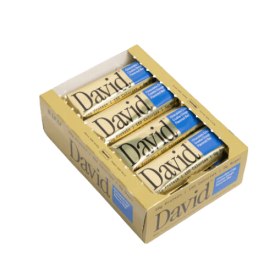
David Protein Bars are not only delicious but come in an array of must-try flavors, including Blueberry Pie and Fudge Brownie. These also pack more protein per serving (28 grams) than your average bar.
Specs
- Price Per Bar: $3.25
- Protein Source: Milk protein isolate, collagen, whey protein concentrate, egg white
- Protein per Serving: 28g
- Calories per Serving: 150
- Available Flavors: Chocolate Chip Cookie Dough, Fudge Brownie, Cake Batter, Blueberry Pie
Your protein snack should be enjoyable, so that you actually look forward to meeting your protein intake. David Protein Bars are almost scarily good, earning a 5 out of 5 in the flavor department. They also offer a good variety of flavor options, including Chocolate Chip Cookie Dough, Fudge Brownie, Cake Batter, and Blueberry Pie.
Our team was also pretty impressed with the amount of protein per serving, giving the formula a 4 out of 5 rating. These bars are 75% protein, packing 28 grams per serving, which is more than you’ll find with most others. However, we do wish they were third-party tested to better confirm that the label is totally accurate.
Unlike other protein bars, however, this one certainly wasn’t the most budget-friendly we could fined. One box of 12 bars costs $39, which is about $3.25 per bar. We had to rate the cost a 3 out of 5 because athletes shopping on a budget can definitely find options under $3 per bar.
We also like that the David Protein website closely spells out each ingredient and why they use it in their product. This transparency is definitely a plus, considering a lot of protein bars on the market can contain artificial ingredients, colors, and fillers.
Best Protein Bar for Muscle Gain: Legion High-Protein Bar
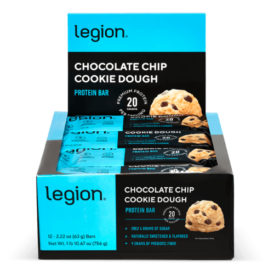
Legion High-Protein Bar has 20g of protein, 24g of carbs, and 12 grams of fat per bar. It slots in at 240 calories, and there’s only 4g of sugar per bar, which is pretty low considering some bars have up to 20g. Plus, the protein comes from a combination of whey protein isolate and whey protein concentrate, which makes for a balanced, stable blend.
Specs
- Price Per Bar: $3.33
- Protein Source: Whey isolate, whey hydrolysate, whey concentrate
- Protein per Serving: 20g
- Calories per Serving: 240-250
- Available Flavors: Chocolate Peanut Butter, Blueberry Muffin, Chocolate Chip Cookie Dough, Peanut Butter Jelly, S’mores
For athletes looking to gain muscle, we highly recommend Legion’s High-Protein Bar. Each bar comes with 20 grams of a protein blend containing whey isolate, whey hydrolysate, and whey concentrate, as well as 240 to 250 calories. That’s enough for a perfect post-workout supplement.
The ingredients are clean, including 6 to 12 grams of fat, 24 to 38 grams of carbohydrates, and a makeup that’s free of any sugar alcohols, gluten, or artificial sweeteners. “Legion High Protein Bars score 4 out of 5 for their formulation, with deductions for the erythritol, added sugar, and fat content,” BarBend expert reviewer Chelsea Rae Bourgeois says.
“The Chocolate Peanut Butter was very chocolate-focused,” BarBend editorial member Ben Emminger says, scoring the flavor a 3.5 out of 5. “I didn’t get as much peanut butter taste as I would have liked — I only really noticed it in the aftertaste.” Nevertheless, if you’re a chocolate fan, he compares this one to a Hershey’s Kiss.
Considering the amount of protein per bar, the texture isn’t the best. “This protein bar is pretty dense and hard to bite,” Emminger says, rating its texture 3 out of 5. “This could be tough for people with sensitive teeth to bite into.” For those who prefer a chewier option, we recommend one of our other picks.
That being said, this bar does pack a lot of protein, which is great for athletes who want to swap out their protein shake. This product is pretty pricey at $3.33 per bar but considering the protein density, we gave the overall value a 4 out of 5.
“Each bar is 250 calories, making it a worthwhile solution for quick breakfasts or satiety in-between my normal meals,” says Emminger, noting its tough texture. “Outside of the workout needed to bite into the bar, I feel as though this Legion bar did well.“
Best Crunchy Protein Bar: Promix Crunchy Puff Bar
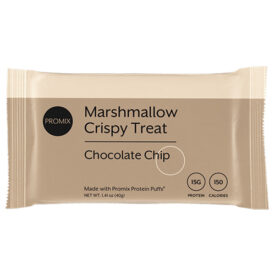
These crunchy bars are reminiscent of a rice crispy treat that's packed with protein and absent all that unwanted sugar. They're a nice change from normal chewy protein bars.
Specs
- Price Per Bar: $2.67
- Protein Source: Whey Protein Isolate, Whey Protein Concentrate
- Protein per Serving: 14-15 grams
- Calories per Serving: 150-160 calories
- Available Flavors: Vanilla, Snickerdoodle, Chocolate Chip, Mint Chocolate, Blueberries and Cream, Strawberries and Cream, Variety Pack
Texture is a big part of what makes food enjoyable. If you’re tired of the same old grainy protein bar texture, you might want to pick up one of these snacks that are more like a rice treat. After giving it a try, our testers give Promix Crunchy Puff Bars a 4.5 out of 5 for texture.
Promix features whole food ingredients and third-party testing results available to view for each product. Plus, these are a great choice for people looking to prioritize protein and keep carbs and fats minimal. “You get a nice helping of protein per serving, but it is fairly low in carbs and fat,” according to our expert reviewer Chelsea Rae Bourgeois, who rates the formula a 4 out of 5. “I like it when supplements stay true to their name and serve as a supplemental boost to a well-balanced diet.”
BarBend editorial member Ben Emminger appreciates the flavor profile of these unique high protein snacks, which he notes are light and not too rich. “I enjoy the chocolate flavor,” he says, rating the taste a 5 out of 5. “It’s just like a chocolate Rice Krispies treat.”
These aren’t high enough in calories to qualify as the best meal replacement, so if that’s what you’re looking for, you may want a different bar. Nevertheless, our team found these pretty filling. “Having one of these bars was pretty satisfying,” another BarBend tester says, giving the effects a 4 out of 5.
The price is also approachable at $2.67 per serving, albeit slightly higher than some protein bars we included in this round-up, earning a 4 out of 5 for cost. For the uniqueness and interesting makeup, though, we’re willing to pay the extra coin and get a nice dose of nostalgia along with our daily macros.
Best Natural Protein Bar: 1st Phorm Vegan Power Pro Bar
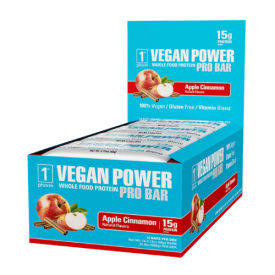
For those following a plant-based diet, 1st Phorm has you covered. These bars are completely vegan-friendly and they pack 15 grams of protein per serving, ideal for a post-workout snack.
Specs
- Price Per Bar: $2.86
- Protein Source: Pea protein
- Protein per Serving: 15g
- Calories per Serving: 270
- Available Flavors: Apple Cinnamon, Banana Nut Bread, Chocolate Brownie, Chocolate Mint Cookie
Protein bars can be filled with processed, artificial ingredients but that’s not the case with 1st Phorm’s Vegan Power Pro Bar. This protein uses all natural, whole ingredients, even sweetening the formula with stevia (not an artificial sugar).
“I appreciate that many of the ingredients in these protein bars come from whole food sources. It’s these wholesome ingredients that provide a hefty dose of several vitamins and minerals in each serving,” says our excerpt reviewer Chelsea Rae Bourgeois, RDN, rating its formulation 3.5 out of 5. “These protein bars feature some impressive whole-food ingredients. However, their fat content may not be appropriate for everyone.”
Taste-wise we admittedly aren’t huge fans of the flavor. “It’s not something I would initially reach for, but if it’s what I have on me and I’m hungry, it’ll get the job done,” says BarBend editorial member and certified personal trainer Rosie Borchert. She rates the taste 3.5 out of 5. “At least there are a good amount of chocolate chunks mixed in that were delicious, moist, and helped break up the chalkier taste.”
“Some of the bar was a bit dry, but I expected that since it is a vegan bar,” she adds, giving its dense texture just a 2.5 out of 5. Aside from the texture, though, Borchert doesn’t notice any negative side effects. Price-wise, Legion’s bars are pretty approachable, earning a 4 out of 5 for cost. One 15-bar box costs $42.99, which is about $2.86 per bar. And you can even subscribe to monthly deliveries and save money.
Best Protein Bar for Weight Loss: Bulletproof Protein Crisp Bar
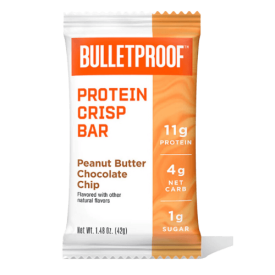
Bulletproof's Protein Crisp Bars are extremely calorie-friendly, making them an easy addition into any weight-loss or fat-loss diet. We also love the clean, whole food ingredients.
Specs
- Price Per Bar: $2.99
- Protein Source: Pea protein
- Protein per Serving: 11g
- Calories per Serving: 160
- Available Flavors: Peanut Butter Chocolate Chip, Coconut Chocolate Chip, Salted Caramel, Chocolate Mint Chip
Having a low-calorie protein bar in your snack cabinet is a great way to stick to your weight-loss plan while enjoying a delicious, filling treat. For those looking to lose weight, we recommend Bulletproof’s Protein Crisp Bar.
We like that this bar has zero artificial sweeteners and it’s completely gluten-free, dairy-free, and keto-friendly. It also contains stevia and monk fruit extract as sweetening agents, which most people probably prefer to artificial sugars. However, these do contain peanuts and almonds, which may not work with everyone. We also wish they were a little more protein-dense.
“These protein bars provide more calories from fat than protein,” Chelsea Rae Bourgeois, RDN, says, rating the formula a 3 out of 5. “As these are considered a protein supplement, I would have expected more emphasis on protein.”
After trying out the Chocolate Mint Chip, BarBend editorial member Ben Emminger rates these bars 4.5 out of 5 overall. “The initial bites are minty, almost like a peppermint patty, but the chocolate soon begins to work its way into the picture,” he says. “Overall, not a bad experience.”
“The ‘crisp’ nomenclature refers to the rice crisps contained in the bar. The chocolate was soft but not overly chewy, so the rice bits did break up the mouthfeel well enough,” Emminger notes, scoring its texture 4.5 out of 5. “The bar itself had a glossy aesthetic which often means a sticky exterior, so I’d recommend eating these protein bars by using the wrapper as a holding device.“
“Honestly, these bars were a nice experience but not world-changing, in my opinion,” Emminger adds. “The included crisps provided a good mouthfeel and the flavor was appealing, but I have other bars that I’d prefer, still. Plus, the 11 grams of protein may be too low for some dietary needs.“
Bulletproof’s protein bars earn a 4 out of 5 for cost, as they’re about $2.99 per bar. This isn’t the most expensive product on this list but you can still find cheaper options. We do like that you can subscribe to recurring deliveries for 20 percent off, though.
Best Vegan Protein Bars: Orgain Protein Snack Bar
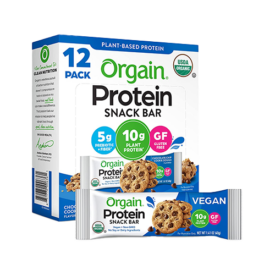
Orgain Protein Snack Bars are a great on-the-go snack that provides a hit of protein. They’re also helpful as a quick post-workout snack. Each bar has 10g of vegan protein sourced from rice and peas as well as low sugar with no artificial flavors or preservatives.
Specs
- Price Per Bar: $1.99
- Protein Source: Brown rice protein, pea protein
- Protein per Serving: 10g
- Calories per Serving: 150
- Available Flavors: Peanut Butter Chocolate Chunk, Chocolate Brownie, Chocolate Chip Cookie Dough, Chocolate Coconut, Peanut Butter, S’mores
While most protein bars on the market contain whey, that’s certainly not the case for Orgain’s Protein Snack Bar. These are completely vegan-friendly with zero animal-based ingredients. You also get 10 grams of plant protein per serving from brown rice and peas.
This product is certified plant based, so those following a vegan diet can eat these in confidence. We do wish the formula contained a little more protein, though, as one serving only provides 10 grams. “The protein content is pretty modest compared to the rest of the market, and the added sugar and sugar alcohol content may not be ideal for everyone,” said Chelsea Rae Bourgeois, RDN, who rated the formula a 3.5 out of 5.
“These taste really good, especially for a plant-based protein bar,” our tester says, rating the flavor a 5 out of 5. “I ate the Chocolate Chip Cookie Dough and it didn’t taste too earthy like some other plant-based protein bars.”
We also like the texture more than some of the other bars we’ve tried, giving this category a 5 out of 5. “The texture actually reminded me of cookie dough,” our tester adds. “It’s soft and chewy, definitely matching the flavor description.”
Our tester does note a little mouth dryness but it’s far from a deal-breaker. “I’m surprised by how much I enjoyed this bar,” they say. “But you do get a little bit of an aftertaste due to the artificial ingredients, like erythritol.” Those who don’t love artificial ingredients may prefer another pick.
These are also super price-friendly at only $1.99 per bar. We gave the cost a 5 out of 5, as they’re among the most budget-friendly protein bars on this list.
Best Keto Protein Bar: Nick’s Keto Snack Bar
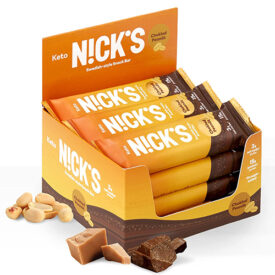
If you’re craving a candy-style bar without all the added sugar, these keto protein bars have 14 grams of protein with only four net grams of carbs and seven to 10 grams of fat.
Specs
- Price Per Bar: $1.99
- Protein Source: Milk protein concentrate, whey protein concentrate, hydrolyzed casein
- Protein per Serving: 12-15g
- Calories per Serving: 160-190
- Available Flavors: Choklad Peanot, Karamell Choklad, Kristi Nougat, Mint Chocolate, Almond Chocolate, Triple Chocolate, Premium Variety Pack
Looking to limit your carbs and chow on some protein bars that are high in fat instead? If you’re following a keto diet, this protein bar can be a great option for you.
It can be tough to find a good keto protein bar, but Nick’s Keto Snack Bar takes care of business. Each bar only has 4 net grams of carbs, 10 grams of fat, and two grams of sugar — but the 12 to 15 grams of protein can keep you fueled up. Our team gave the formulation a 4 out of 5 here, as the higher fat content may not work for everyone.
There are no added sugars in these bars, but their full chunks of nuts and layers of texture make these protein bars feel like candy bars. Naturally, though, we advise those sensitive to nut allergens to forgo this protein bar option.
As tasty as these bars are, though, we don’t recommend them for athletes looking to replace a meal with a worthwhile protein bar. The calorie count sits between 160 and 190 depending on the flavor, which is sufficient for a snack, but not enough to substitute for a dish containing whole foods.
We liked the cost for these, too, giving this category a 5 out of 5. One bar only costs $1.99, which is far cheaper than some other options on this list.
Best Budget Protein Bar: Pure Protein Bars
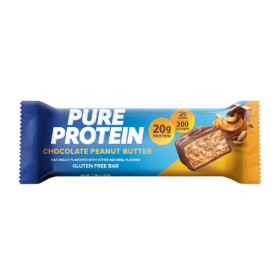
Pure Protein Bars are a budget-friendly protein bar that pack 21 grams of protein per serving, making them a perfect protein shake alternative. They're also available on Amazon Prime!
Specs
- Price Per Bar: $1.18
- Protein Source: Milk protein isolate, whey protein isolate, whey protein concentrate
- Protein per Serving: 21g
- Calories per Serving: 180
- Available Flavors: Birthday Cake, Caramel Churro, Chewy Chocolate Chip, Chocolate Deluxe, Chocolate Mint Cookie, Chocolate Peanut Butter, Chocolate Peanut Caramel, Chocolate Salted Caramel, Cookies and Cream, Galactic Brownie, Lemon Cake, Strawberry Greek Yogurt
For those shopping on a budget, paying more than $3 per protein bar is a pretty steep cost. But you can find high-quality protein bars for just over $1 per serving and that’s why we recommend Pure Protein Bars. At only $1.18 per bar (and available on Amazon Prime), these are a bargain. Our team gave this product a 5 out of 5 for cost.
“Despite picking up way more chocolate than peanut butter, I really enjoy the Chocolate Peanut Butter flavor,” says BarBend editorial member Matt Cummings, who rates its taste 4.5 out of 5. “Honestly, it’s pretty close to a Reese’s and not the typical “manufactured” protein bar taste I’ve experienced before.”
Pure Protein Bars are chewy and rich without much dryness at all — texture earns a 4 out of 5 from Cummings. “The inside had the nougat-like thickness of a Three Musketeer’s bar,” he says. “Overall, though, they are pretty thick and take a little effort to chew.”
For those wanting a pretty natural protein bar, though, these may not be the best choice. We do like the 20 grams of protein per serving, which is more than you get with some all-natural options. “These protein bars get the job done, but the use of sugar alcohols and its saturated fat content may be enough reason for some people to avoid them,” Chelsea Rae Bourgeois, RDN, says, giving the formula a 3.5 out of 5. rating.
Compared to other options on the market, Cummings thinks that Pure Protein Bars are a solid choice.“Protein bars I’ve had in the past seem like they are just doing their best to taste like a candy bar or fruit bar,” he says. “Pure Protein is probably the closest to a Reese’s or Three Musketeer’s bar that I’ve tried.”
Best Low-Carb Protein Bar: EPIC Bars
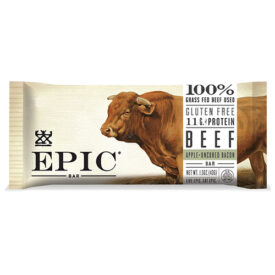
This natural meat-based protein bar is perfect for dieters who want to avoid carbs and lean into fats. Depending on the flavor you choose, they pack around 130 calories per bar, and between seven and 13 grams of protein, five to 13 grams of fat, and one and eight grams of carbs.
Specs
- Price Per Bar: $2.77
- Protein Source: Meat-based
- Protein per Serving: 7-11g
- Calories per Serving: 70-170
- Available Flavors: Bison with Beef + Sea Salt + Pepper, Bison Bacon Cranberry, Venison Sea Salt Pepper, Chicken Sriracha, Beef Apple Bacon, Uncured Bacon + Pork, Beef Sea Salt + Pepper, Beef Jalapeño, Beef Barbacoa-Inspired, Chicken BBQ Seasoned, Variety Pack, Keto Friendly Variety Pack
There are not too many true low-carb protein bars on the market. Most protein bars will have higher fiber content with minimal carbs, which is typically promoted as a lower net carb content. Although, with respect to true carb minimalism, few bars truly accomplish this. At a meager one to three carbs per bar, EPIC Bars are the perfect fit for the best low-carb protein bar.
You can buy bars made from a variety of meat sources, including pork, chicken, beef and bison. They are Whole-30, keto-approved and are free of GMOs. Depending on the flavor you choose, they pack between 7 and 13 grams of protein, 5 to 13 grams of fat, and 1 and 8 grams of carbs. They also have minimal added ingredients and zero nitrates or nitrites added, earning the formula a 4.5 out of 5.
I’m personally a huge fan of the bison bars. These have some dried cranberries in the bar, which adds some moisture. The berries also add to the overall flavor, which I’d give a 4 out of 5. I’ve also tried the venison, which I found to be a little drier and less appetizing overall.
As far as texture is concerned, I rate these bars a 4.5 out of 5. They feel a lot like beef jerky but they aren’t too chewy. I don’t think the bison bars are very dry at all but that wasn’t really the case with the venison. That being said, venison is known for being a very lean protein, so the dryness makes sense.
Naturally, the animal-based makeup of these treats doesn’t align with certain diets. We wouldn’t recommend these bars for athletes that are plant-based in their nutrition (we have other recommendations for those needs). Still, if you’re looking to mix things up and want a unique flavor to compliment your daily nutrition, consider EPIC’s lineup of animal-based protein snacks.
At $2.77 per bar, we gave the cost a 3.75 out of 5. They aren’t the cheapest product on the market but these bars are unique and contain clean ingredients. In my opinion, they’re definitely worth the cost.
Read our full EPIC Protein Bars Review.
How We Tested and Chose the Best Protein Bars
The BarBend team of registered dietitians, certified nutrition coaches, and personal trainers has downed over 35 different protein bars to gather the best of the best. After tasting as many flavors as we could get our hands on, we scrutinized the labels to see what was under the hood. Following BarBend’s supplement testing methodology, we assigned ratings of 1 (lowest) to 5 (highest) across multiple categories, including formulation, taste, and value. Check out a few of the key factors we considered during testing.
- Macronutrients: We looked for bars that contain the macronutrients that promote muscle recovery and satiation, while keeping calories minimal (since the focus is on protein, not carbs and fats). To make sure you can get a decent protein boost, we included options containing a minimum of seven grams of protein, but highlighted much higher totals, as well.
- Calories Per Bar: Calorie-wise, we prioritized bars that hovered around 150 calories per serving. Lower-calorie bars were included for snacking and weight loss needs, while those with higher counts earned their place as solid options for weight gain and meal replacement.
- Taste and Experience: Of course, taste is by-and-large subjective, term for most, but we looked for protein bars with a range of appealing flavors. While many of our included profiles showcased a chocolate-rich variety, we also featured a handful offering more fruit-based options like blueberry or lemon.
- Price: Protein bars should easily fit within your budget as a nice snack or quick alternative to a meal when in a pinch. We were able to find respectable protein and calorie counts at all price points, but we did notice that bars containing particularly high doses of protein, or with fewer artificial ingredients, typically cost more.
[Read More: Best Mass Gainers, Tested by Experts and RD Approved]
The Different Types of Protein Bars
When looking at protein bars, you’re likely to find differences within each makeup. Some may contain milk proteins or artificial ingredients, while others contain a completely plant-based formulation. We could really get into the weeds when it comes to all the differentiators between brands and makeups, so for the sake of simplicity, let’s focus on one area that matters most in protein bars — the protein source.
Animal-Based
Many of the top protein bars utilize whey as a protein source. Whey is a derivative of milk, and therefore an animal-based source of protein. It comes from the process of making cheese, and can be broken down into a concentrate. That concentrate can be broken down even further into a protein isolate, which is often considered a gold standard in protein bars and powders.
Other animal-based protein sources include meat, poultry, fish, eggs, and other dairy products. While these can be used in protein blends for certain protein bars — or even primary sources, as seen in EPIC’s lineup of meat-based bars — whey or milk-derived protein is still the most common.
[Read More: The Best Protein Powders for Men, Tested and Reviewed]
Plant-Based
While dairy and animal-based protein sources are heavily represented in the protein bar category, there are plant-based options out there that can still deliver worthwhile macro dosages.
Beans, peas, nuts, seeds, and whole grains are heavily used in plant-based protein bars — many of which we’ve included in this guide. These options can be great for athletes following strict diets, or those sensitive to dairy or other animal products.
While plant-based protein bars can be great for such nutritional needs, we do recommend paying close attention to the listed calories in bars of this type. Nuts, for example, can be rich in protein and fat, but tend to be more calorie dense than other options. (12)
It’s also important to choose a protein bar with a complete amino acid profile. Not all plant proteins contain all nine essential amino acids; often, a combination is required to deliver all of them. Look for pea and soy proteins, which do contain all nine (but are low in certain ones), or combos like brown rice and pea protein together.
[Read More: Benefits of Pea Protein]
The Benefits of Protein Bars
Protein bars can be worthwhile alternatives to protein shakes and whole foods every now and again, giving your palette a nice mix-up while still delivering hearty helpings of vital macronutrients. Below are some of the benefits that can come with adding these tasty treats to your repertoire.
- Additional Protein Intake: Whether you’re looking to gain muscle, decrease body fat, or both, studies suggest that focusing on protein intake can help. According to a 2020 study, getting a lot of protein in your diet can help increase muscle mass and decrease body fat, especially when in conjunction with an exercise program. (1)
- Boosted Post-Workout Recovery: A 2018 study found that a diet high in protein can help improve your muscles’ recovery after a hard training session. (2) So whether you’re thinking about your long term goals (muscle gain, for example) or short term gain (like improving recovery), protein bars could be helpful.
- Convenience: Protein bars are a convenient and healthier snack to have on hand compared to junkier options like chips or candy bars. Even if you aren’t trying to meet any particular fitness goals, it can be better for your long term health to reach for a protein bar rather than a candy bar when your sweet tooth hits.
Calculating Your Protein
Protein is the building block of the muscle and is responsible for muscle gain (if you’re in a caloric surplus) or muscle retention (if you’re in a caloric deficit). (11) According to Harvard Health, the recommended dietary intake for protein is 0.8 grams of protein per kilogram of body weight, or 0.36 grams per pound, but up to 2.0 grams per kilogram of body weight is considered better for muscle growth and sustaining muscle mass in athletes. (3)(14) Rather than breaking out the calculator to confirm your daily servings, use our protein intake calculator to figure out how much you need.
Protein Intake Calculator
How Much Do the Best Protein Bars Cost?
Before choosing your go-to protein bar, it can be helpful to line up the cost of each option. Take a quick look at how much you can expect to spend on each of our top picks.
| Best Protein Bar Overall | Transparent Labs Protein+ Bar | $3.33 per bar |
| Best Tasting Protein Bar | David Protein Bar | $3.25 per bar |
| Best Protein Bar for Muscle Gain | Legion High-Protein Bar | $3.33 per bar |
| Best Crunchy Protein Bar | Promix Crunchy Puff Bar | $2.67 per bar |
| Best Natural Protein Bar | 1st Phorm Vegan Power Pro Bar | $2.86 per bar |
| Best Protein Bar for Weight Loss | Bulletproof Protein Crisp Bar | $2.99 per bar |
| Best Vegan Protein Bar | Orgain Protein Snack Bar | $1.99 per bar |
| Best Protein Bar for Keto | Nick’s Keto Snack Bar | $1.99 per bar |
| Best Budget Protein Bar | Pure Protein Bars | $1.18 per bar |
| Best Low-Carb Protein Bar | EPIC Protein Bars | $2.77 per bar |
What To Consider When Buying Protein Bars
Finding the ideal protein bar for your nutritional needs may seem like a daunting task with all the options and formulations available. It doesn’t need to be a complicated matter, though, if you keep the following factors in mind when searching through the available snacks on the market.
Training Goals
When you’re thinking about investing in protein bars, you want to consider your training goals and how you want your supplements to fuel your progress. In the gym, are you mostly training right now to build muscle? To lose weight? Regardless, you’ll want a protein bar that matches what you’re putting your body through during workouts. Check to see whether the bar you’re interested in is on the upper or lower end of the protein bar calorie range, typically between 150 and 300 calories.
Eating Habits
Which protein bar is right for you also depends on your eating habits throughout the day. Do you tend to be on the run after your workout? You may need a bar that’s higher in protein to make sure you are properly refueling post-workout. Or, maybe, you just want a protein bar to keep in your bag to stave off hunger between meals. In that case, it might be less about total protein levels and more about something that’s going to taste good and keep you full. A bar high in fiber can help with satiety..
In the end, be sure to look for a protein bar that compliments your regular intake rather than throws your nutrition out of whack. The best nutrition plan is one containing plenty of whole foods, therefore your protein bars should act as accessory pieces instead of the leading roles.
Dietary Needs
Thinking about what your body and mind need from your food is also of primary importance. If you don’t want to count calories, try to check out the ingredients instead. Do you want something with pure cane sugar or sweeteners like honey? Maybe it’s most important to you that your protein bar be as unprocessed as possible and free of any artificial ingredients.
You’ll also need to think about your specific dietary needs and restrictions when deciding on a protein bar. If you follow a diet such as keto, Paleo, veganism, or others, be sure to look and see if your protein bar’s formulation fits within your guidelines.
[Read More: The Best Protein Powders for Women, RDN-Approved]
Flavor
Of course, you’re going to find more enjoyment and positivity with your protein bar selection if the flavor pleases your palate. Make sure your protein bar offers an enticing taste that you’d likely enjoy on a regular basis. It can also be helpful to go with a bar offering multiple flavors. This can give you some leeway down the road if you begin to suffer some flavor fatigue. The additional flavor variety can be helpful in keeping your formulations relatively the same while still making for a tasty treat.
Price
Finally, protein bars are a nice snack to have on hand, but they shouldn’t be a major detriment to your daily budget. Most bars will range in prices from roughly $1.50 to $3.50, so be sure you can afford your daily treat before opting for a specific profile.
If you’re really intrigued by a more expensive protein bar, consider saving that specific formulation for special occasions. This can be a good way to motivate yourself in training while also keeping your needs satisfied with a worthwhile snack.
Best Protein Bars FAQs
Are protein bars good for you?
Yes and no. Protein bars with a lot of sugar content and/or artificial ingredients are not really healthy and there are likely better options for foods to consume. However, if you’re in need of a convenient, high-protein snack, and they’re an option compared to something like a candy bar, then there’s an argument to be made that they are healthier in comparison.
Are protein bars good for weight loss?
It depends. Protein bars can be used as tools to aid with long-term weight loss in the greater scope of one’s diet, but protein bars alone are not inherently magic or overly healthy compared to natural, nutrient-dense foods.
What is the best protein bar?
The best protein bar is subjective, as every athlete has different nutritional needs and varying flavor preferences. For our money, though, we recommend Transparent Labs Protein+ Bar.
Can kids eat protein bars?
Protein bars can be a suitable snack for just about anyone, kids included. However, it’s important to make sure to double check that the bars you choose don’t conflict with any of your children’s allergies or health conditions. Protein bars aren’t a sufficient meal replacement, either.
Do protein bars make you gain weight?
Any food can contribute to weight gain if you’re eating more calories than you’re burning, though some are less likely than others due to caloric density. You’re much less likely to gain weight by eating apples and broccoli than chips and pizza because of the difference in calorie density. Protein bars differ greatly in calorie count, from as little as 100 to more than 300, so be sure to check the label before you buy.
When Should You Eat Protein Bars?
There’s no best time to consume your protein — the best time is when it’s most convenient for you. That said, your workout schedule might prevent you from being able to eat a full meal within a few hours of training. Or, you might just like having a protein bar on hand — especially if you travel around a lot during the day, or train early in the morning on an empty stomach.
References
- Davies RW, Carson BP, Jakeman PM. The Effect of Whey Protein Supplementation on the Temporal Recovery of Muscle Function Following Resistance Training: A Systematic Review and Meta-Analysis. Nutrients. 2018;10(2):221. Published 2018 Feb 16. doi:10.3390/nu10020221
- Carbone JW, Pasiakos SM. Dietary Protein and Muscle Mass: Translating Science to Application and Health Benefit. Nutrients. 2019;11(5):1136. Published 2019 May 22. doi:10.3390/nu11051136
- Antonio, J., Candow, D. G., Forbes, S. C., Ormsbee, M. J., Saracino, P. G., & Roberts, J. (2020). Effects of dietary protein on body composition in exercising individuals. Nutrients, 12(6), 1890. https://www.ncbi.nlm.nih.gov/pmc/articles/PMC7353221/
- Davies, R. W., Carson, B. P., & Jakeman, P. M. (2018). The effect of whey protein supplementation on the temporal recovery of muscle function following resistance training: A systematic review and meta-analysis. Nutrients, 10(2), 221. https://pubmed.ncbi.nlm.nih.gov/29462923/
- Arent SM, Cintineo HP, McFadden BA, Chandler AJ, Arent MA. Nutrient Timing: A Garage Door of Opportunity? Nutrients. 2020 Jun 30;12(7):1948. doi: 10.3390/nu12071948. PMID: 32629950; PMCID: PMC7400240. https://pubmed.ncbi.nlm.nih.gov/32629950/
- Williams, G., Noakes, M., Keogh, J., Foster, P., & Clifton, P. (2006). High protein high fibre snack bars reduce food intake and improve short term glucose and insulin profiles compared with high fat snack bars. Asia Pacific journal of clinical nutrition. https://pubmed.ncbi.nlm.nih.gov/17077058/
- Traylor, D. A., Kamal, M., Nunes, E. A., Prior, T., Gorissen, S. H., Lees, M., Gesel, F., Lim, C., & Phillips, S. M. (2021). Consumption of high-leucine-containing protein bar following breakfast impacts aminoacidemia and subjective appetite in older persons. Current Developments in Nutrition, 5(6). https://www.ncbi.nlm.nih.gov/pmc/articles/PMC8178109/
- Wu, G. (2016). Dietary protein intake and human health. Food & Function, 7(3), 1251–1265. https://pubmed.ncbi.nlm.nih.gov/26797090/
- McKeown, N. M., Fahey, G. C., Slavin, J., & van der Kamp, J.-W. (2022). Fibre intake for Optimal Health: How can healthcare professionals support people to reach dietary recommendations? BMJ. https://pubmed.ncbi.nlm.nih.gov/35858693/
- Wunsch, N.-G. (2020, November 25). U.S. candy and chocolate average price by segment 2019 L statistic. Statista. https://www.statista.com/statistics/643582/average-unit-price-candy-and-chocolate-us-by-segment/
- Kim, J. Y. (2021). Optimal Diet Strategies for weight loss and weight loss maintenance. Journal of Obesity & Metabolic Syndrome, 30(1), 20–31. https://www.ncbi.nlm.nih.gov/pmc/articles/PMC8017325/
- Collier, G., McLean, A., & O’Dea, K. (1984). Effect of co-ingestion of fat on the metabolic responses to slowly and rapidly absorbed carbohydrates. Diabetologia, 26(1). https://pubmed.ncbi.nlm.nih.gov/6368300/
- Protein. The Nutrition Source. (2023, October 19). https://www.hsph.harvard.edu/nutritionsource/what-should-you-eat/protein/
- De Souza, R., Schincaglia, R., Pimentel, G., & Mota, J. (2017). Nuts and human health outcomes: A systematic review. Nutrients, 9(12), 1311. https://pubmed.ncbi.nlm.nih.gov/29207471/
- Sousa, R., Portmann, R., Dubois, S., Recio, I., & Egger, L. (2020). Protein digestion of different protein sources using the INFOGEST static digestion model. Food Research International, 130, 108996. https://www.sciencedirect.com/science/article/pii/S0963996920300211
- How much protein do you need every day?. Harvard Health. (2023, June 22). https://www.health.harvard.edu/blog/how-much-protein-do-you-need-every-day-201506188096
